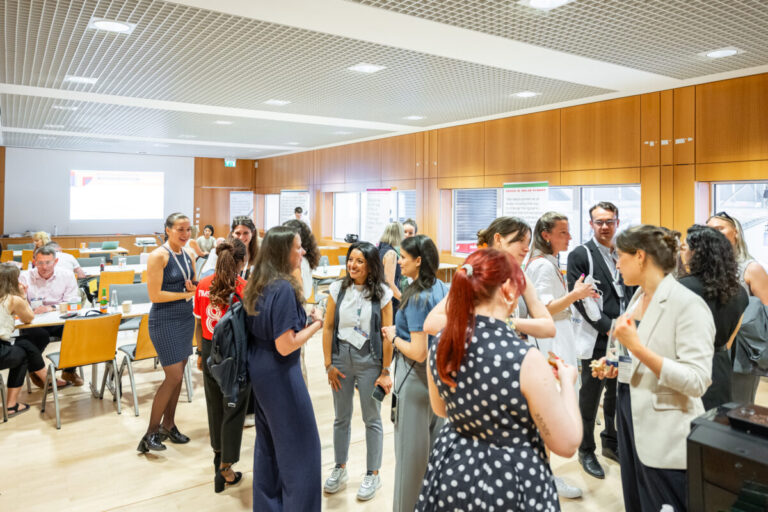This week, Women in Solar Europe (WiSEu) reflects on the need for tangible DEI practices and inclusive leaders who understand the meaning of equality and diversity to create inclusive environments that recognize individual needs and systemic barriers. Addressing these aspects is crucial to boost innovation, creativity and resilience and to meet the challenges of our sectors in the energy transition.
As we welcome the new year and visualize the industry’s upcoming challenges and opportunities, this is a perfect opportunity to reflect on what we’ve learned and explore how we can increase diversity, equity, and inclusion (DEI) in the solar industry into a tangible practice. from 2025. As the solar industry expands and reshapes the global energy landscape, a crucial question arises: how do we make the sector truly inclusive? While ‘equality’ is often in the spotlight, it is ‘equity’ that unlocks the potential for a truly inclusive environment. By recognizing individual needs and breaking down systemic barriers, equity paves the way to achieving equity in the solar energy sector.
Equality means that everyone gets the same resources or opportunities, assuming everyone starts in the same place. However, this approach fails to recognize the unique challenges individuals face based on gender, race, socioeconomic background, or other factors. In the energy sector, these challenges can manifest as limited access to training programs, biased hiring practices, or unequal opportunities for career advancement.
Equity, on the other hand, recognizes that people have different starting points and strives to provide tailored support to create a level playing field. For example, women entering the solar labor market can benefit from mentoring programs that address gender-specific challenges or initiatives that offer flexible work arrangements to balance family responsibilities. By addressing these inequalities, equity paves the way for equality, allowing all individuals to reach their full potential.
To achieve equality, it is essential to recognize the importance of diversity in all its forms, and not just gender. Diversity goes beyond achieving demographic goals; it’s about utilizing the unique perspectives and talents of individuals. When people from different backgrounds work together, they challenge conventional thinking, explore alternative solutions and avoid the pitfalls of groupthink. Research consistently shows that diverse teams are better at solving problems and making decisions. In the energy sector, diversity drives innovation, creativity and resilience – crucial qualities for tackling global energy challenges. Embracing diverse viewpoints drives progress and promotes new solutions.
The ‘four layers of diversity’ framework helps understand individual identity and experiences. The focus is on ‘Personality’, which includes unique traits such as values and preferences that influence team contributions. “Internal dimensions,” such as age, gender, race, and physical abilities, reveal visible factors associated with biases and barriers. ‘External dimensions’, including education, marital status and income, reflect life experiences and opportunities. Finally, the “Organizational Dimensions,” such as job roles and seniority, highlight the need to address diversity within hierarchies for fair decision-making and inclusion.
The beauty of diversity, equity and inclusion (DEI) lies in the ability of everyone, regardless of organizational rank, to be ambassadors for inclusive practices in their daily roles, creating psychological safety environments and thereby improving organizational performance . Inclusive leaders are essential in this mission. By embodying the six hallmarks of inclusive leadership – commitment to diversity, courage to challenge bias, awareness of systemic barriers, curiosity to learn from differences, cultural intelligence to adapt, and collaboration to strengthen diverse teams – leaders can inspiring workplaces where everyone feels valued. and included.
To create an inclusive solar sector, organizations must embed equality in their policies and practices. This includes investing in diversity training, creating fair hiring and promotion pathways, and ensuring representation at all levels of leadership. But it is important to remember that equality, as inclusive leadership, is not a destination, but an ongoing journey. It is a commitment to continuous change and improvement, a commitment that enables the solar and other energy sectors to truly harness the power of diversity and realize a brighter, more inclusive future for all.
Interested in participating in Women in Solar Europe together with other female market leaders and industry experts? More information: www.wiseu.network
The views and opinions expressed in this article are those of the author and do not necessarily reflect those of the author pv magazine.
This content is copyrighted and may not be reused. If you would like to collaborate with us and reuse some of our content, please contact: editors@pv-magazine.com.


